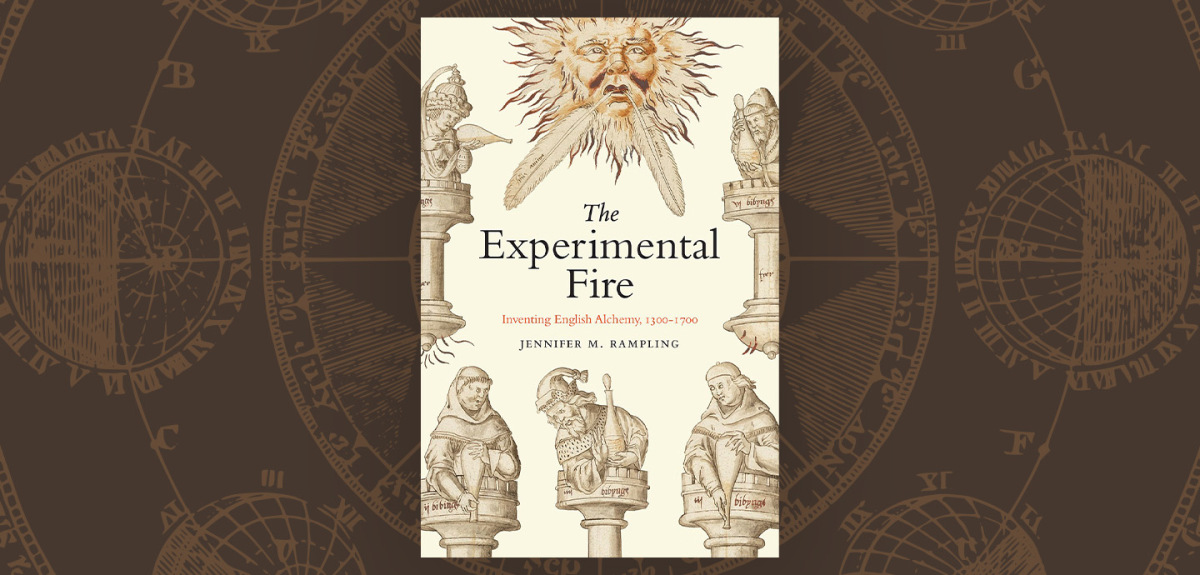[ad_1]
Alchemy may no longer be considered a reputable or factual science, but it still shapes our current understanding of chemistry, physics, and biology. In her new book, The Experimental Fire: Inventing English Alchemy, 1300-1700, scholar and historian Jennifer Rampling shows that this influence is worth chronicling, not only for marking how attitudes towards science have changed over time, but also because of what medieval English alchemy can teach us about the humanities.
There is no one true way to practice alchemy. Yes, there were men who believed they could transmute lead into gold, and then there those who viewed the craft as nothing more than a get-rich-quick scheme. The Experimental Fire spends time with these grifters, many of whom conceded that they couldn’t actually make something out of nothing. They sought, rather, to convince the English royalty that patronage was necessary for their research and made elaborate promises of buoying the Crown’s bullion reserves to aid in overseas wars. Surely, Rampling argues, these men, too, were alchemists.
For others still, alchemy was the art of reading and interpreting alchemical poems, a practice Rampling explicitly refers to as exegesis. These “alchemist-philosophers” were not as focused on the business side of the matter, engaging instead the science as it was presented in alchemical literature. Often these practitioners were monks who had the time, access, and money to read and write their own interpretations. Even so, Rampling explains, “alchemy was not the [sole] province of either the secular or the religious sphere, but spilled across these permeable boundaries to create a mixed economy of practice.” Alchemist-philosophers were often motivated just as much by desire for patronage as mercantile hustlers.
In alchemy, the line between reason and opinion was often indistinct. When knowledge was transmitted in Latin verse, from monk to monk, or privileged aide to a monarch, the myriad meanings of any one philosopher’s text could vary widely and implicate that writer’s career and legacy. On whether it was (or is) possible to write without opinion or bias, Rampling maintains that “for a reader lost in the darkened byways of alchemical literature, opinion might still serve some positive role, if not as a map to the labyrinth, then at least as a lamp to lighten the path.”
Rampling is clear that scholarly humanity is crucial, since that is how she meets her sources on their terms. We must, she argues, “learn how to read our sources like alchemists, alert to the potential multiple meanings of technical terms and allegories alike.” But she also reminds us to practice careful scholarship, to let the methods and facts arrange the story for us, not the other way around.
To that end, Rampling is mindful to position her research as crucial to the development of contemporary scientific thought while keeping sight of historical standards, both distinguishing alchemy from modern chemistry and cautioning us against dismissive attitudes. She also delineates her subject matter from magic, writing that “despite a modern tendency to conflate alchemy and magic under the rubric of ‘occult philosophy,’ the relationship between them is difficult to pinpoint, and in practice varied in line with the opinions and interests of its particular practitioners.” It’s here that Rampling’s work reminds me of Susanna Clarke’s fantasy novel, Jonathan Strange & Mr. Norrell, a pastiche of English magic and the scholarship around it. But of course, The Experimental Fire is a true history whose extensive bibliography is a matter of proper methodology, not fictional verisimilitude.
The Experimental Fire examines only English alchemists from 1300-1700, the high point of the trade, but manages therein to be rich and vast. The book provides both a reason and a methodology for giving the historiography of alchemy such a hypercritical survey. In our current era of rampant conspiracy theories, fake news, and general information overload, it is easier and easier for demonstrable falsehoods to slip through the cracks, to be shared and retweeted and debated and disproved and rediscovered and shared again. Rampling asks that we adjust our theoretical frameworks to consider them more carefully and more fully. Because of its thoroughness, The Experimental Fire challenges us to grapple with a more expansive idea of history, one that includes the lineage, development, and comprehension of false knowledge. Just because something isn’t true doesn’t mean it’s not real, that it can’t be studied, argued over, or taught. Indeed, alchemy, Rampling argues, is nothing but the invention and reinvention of one type of knowledge. And what is literature, or history, or science, if not a variation of the same?

[ad_2]
Source link
